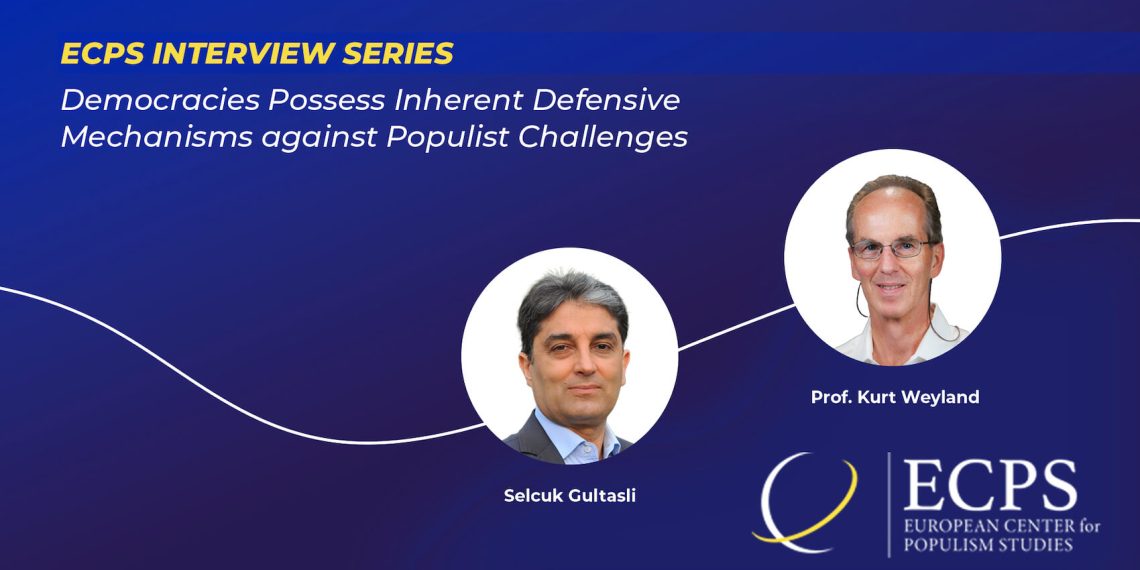Arguing that democracy is less susceptible, less precarious, and less endangered by populist leadership, Professor Kurt Weyland of the University of Texas emphasizes, “Populist leaders inherently lean towards illiberal tendencies, aiming to consolidate power at the expense of democratic principles. However, democracy possesses inherent defensive mechanisms.”
Interview by Selcuk Gultasli
In an exclusive interview with the European Center for Populism Studies (ECPS), Professor Kurt Weyland, a political scientist and Mike Hogg Professor in Liberal Arts at the University of Texas at Austin, shared insights into the evolving nature of populist movements and their impact on democracies. The interview covered key aspects of his research, addressing the weaknesses of personalistic plebiscitarian leadership, the comparative analysis of populism‘s impact on democracy in Europe and Latin America, the role of charismatic leadership in damaging political-party systems, and the long-term impact of populist movements on the political landscape.
Professor Weyland emphasized the challenges faced by populist leaders due to their domineering and self-assured nature, which often leads to arbitrary policy decisions and a lack of systematic governance. He highlighted the difficulties in forming coalitions and the intentional polarization fostered by populist leaders to maintain plebiscitarian support.
The comparative analysis of populism‘s impact on democracy revealed insights into the resilience of democratic institutions, emphasizing the significance of institutional frameworks, robust party systems, and the role of society. Weyland discussed conjunctural opportunities that populist leaders exploit, such as windfall rents and crises, and how these factors contribute to their mass appeal.
Addressing the impact on party systems, Weyland highlighted the corrosive nature of charismatic leadership, causing fragmentation within opposition parties and affecting the overall quality of democracy. He expressed optimism about the future of democracy, acknowledging its record of resilience despite populist challenges.
Regarding the potential re-election of Donald Trump in the United States, Weyland raised concerns about ongoing turmoil but maintained confidence in the strength of US institutions to prevent significant deterioration. He discussed the challenges faced by personalistic leaders in institutionalizing their rule, citing examples from Turkey and Bolivia.
Weyland’s analysis extended to the global perspective, critiquing alarmist findings on the decline of democracy by institutions like the V-Dem Institute. He emphasized the need for nuanced evaluations, considering potential biases in subjective ratings and acknowledging the historical context of democracy’s progress.
Weyland emphasized the significance of tackling representation deficits and addressing citizen concerns, pointing to proactive immigration systems as potential strategies for mainstream parties. He illustrated this point by referencing the Danish Social Democrats’ adoption of restrictive immigration policies, a move that had a profound impact on the populist Danish People’s Party.


